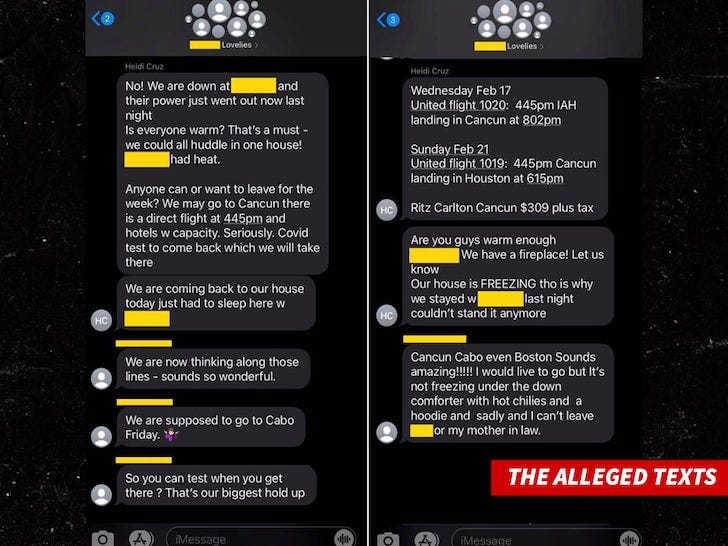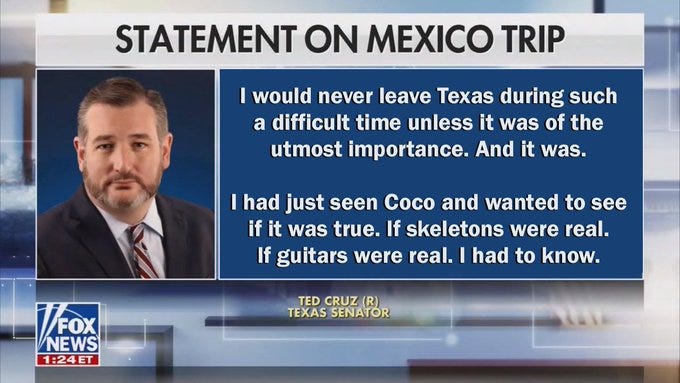Welcome to March, only three months into 2021 and it’s apparent that our perspectives are widening. Politics is no longer all consuming, allowing other stories to finally get more airtime. One thing is for certain while we may no longer have a celebrity president, stories about famous people still grab us.
LET ME SEE SOME SOCIAL PROOF
The recent documentary Fake Famous directed by Nick Bilton1 details three recent LA transplants process to become insta-famous.
Fake Famous explores the attempts made to turn three people into famous influencers by purchasing fake followers and bots to “engage” with their social media accounts.2
The chosen three are initially enthusiastic participants in Bilton’s plan. Becoming Instagram-famous might lead to collaborations with brands, which will provide the influencers with free products and services, and perhaps even money. 3
According to the film, today there are 40 million Instagram accounts that have more than 1 million followers. 4
To put that in perspective:
40 million accounts is equal to 12% of the US population5
1 million people is equivalent to all the residents of Dallas, Texas.6
Meaing roughly 1 out of 12 people is insta-famous.
While the number is surprising, you probably follow many of these accounts. Pause for a second can you think of 3 accounts that have inspired or influenced you.
The quest for social proof created a cottage industry of influencers who are famous for being famous. Over 40 million of them it seems.
“Since 95 percent of the people are imitators and only 5 percent initiators, people are persuaded more by the actions of others than by any proof we can offer.” 7
— Robert B. Cialdini
ONE FOR MY REAL FANS
The rise of social proof has brought renewed focus on social justice, fairness as it manifests in society.
Social justice means that everyone’s human rights are respected and protected. Everyone has equal opportunities. This doesn’t guarantee that society will be perfect and everyone will always be happy. However, everyone will have a fighting chance at the life they want. They aren’t held back by things out of their control like systemic obstacles or discrimination. There isn’t one clear framework for what successful social justice looks like in practice, but that’s why principles like participation are so important. As long as a nation values social justice and remains committed to equality, progress is possible.8
Social justice also applies to celebrities. If we don’t stand up for our celebs, who will. Stars they’re just like us!
OH BRITNEY BABY, HOW WAS I SUPPOSED TO KNOW
Remember Britney Spears? One of the biggest pop-star of the late 90s.
What do you think it was like being Britney back then? It seemed more exhausting than glamourous. Constantly harassed by paparazzi while also being critiqued for your actions. Remember that time Kendel Ehrlich, the Governor of Maryland’s wife who said she wanted to shoot Britney, implying Britney deserved it, because she's a bad role model for kids.9
What was Britney really like at the peak of fame? According to Chuck Klosterman’s profile, the answer was usually:
“I don’t know, and I don’t think she does, either.” And that’s not sarcasm; I honestly believe Britney Spears was so insulated from the public (and so exhaustively governed by the people trying to control her image) that she became unable to differentiate between (a) the person who was famous and (b) the person she actually was.10
After a very public meltdown, Britney mainly retired from the public eye. However, due to these prior incidents, Britney was not allowed to be in control of her own wealth, instead, it is managed by her father through a conservatorship, a topic touched on in Ratlinks: “Pardon Me”.
The documentary Framing Britney Spears shines a light on the ethics of Britney’s conservatorship, one that monitors every dollar she spends even though she is generating millions from a Las Vegas residence. The film also follows along with a growing number of her fans who are agitating on her behalf to #FreeBritney. Raising questions about civil liberties while trying to deduce what Spears really wants.11
I feel like if you are an adult you should be able to live your life and not be controlled. I think that maybe stems from me being controlled so much so I can understand how that would feel and I can't imagine right now if that was still happening to me. After just working your whole life and working so hard, she's this icon and I just feel like she has no control of her life whatsoever and I just don't think that's fair.
— Paris Hilton
How is Britney intertwined with Tiger King? Check out RatLink's profile: What’s Up Doc Antle.
CHAPPELLE’S SHOW OR IS IT
Dave Chappelle is one of our generation’s best comics and best known for his landmark Chapelle’s Show. A show that abruptly ended at the height of the program's success with the comedian famously walking away from the show and a $50 million payday.
Chappelle frames this experience as emblematic of an immoral corporate entertainment system that mistreats artists. Telling Oprah Winfrey in an interview that he had left the show in part because of stress and in part because he felt conflicted about the material he was producing, saying:
I was doing sketches that were funny, but were socially irresponsible.
Last year, as his show was about to enter into a new syndication deal, Dave Chappelle asked his fans to boycott “Chappelle’s Show,” in order to put pressure on ViacomCBS to rectify his grievances over a contract he signed as a young comedian.
People think I made a lot of money from 'Chappelle’s Show.' When I left that show, I never got paid. ViacomCBS didn’t have to pay me because I signed the contract
The boycott worked as Chappelle explained in a recent Instagram video
When you stopped watching it, they called me, and I got my name back, and I got my license back, and I got my show back, and they paid me millions of dollars. Thank you very much.12
CRUZ CONTROL
Where is justice for Ted Cruz?
In the middle of one of the worst crises in Texas history, Senator Ted Cruz decided he needed a mojito. Yes, Cruz went on vacation to Cancún, Mexico, on February 17 while his home state declared a state of emergency because, no, he doesn’t care about his constituents.13
Senator Cruz like any good politician tried to pass the blame to his daughters. Below is his actual official statement:
With school canceled for the week, our girls asked to take a trip with friends. Wanting to be a good dad, I flew down with them last night and am flying back this afternoon.
I had initially planned to stay through the weekend and to work remotely there, but as I -- as I was heading down there, you know, I started to have second thoughts almost immediately because the crisis here in Texas, you need to be here on the ground.”14
Shortly after his statement, texts from Cruz’s wife Heidi Cruz to a neighborhood group chat were leaked to the press, contradicting his statement.
As the Tekashi 69 saga taught us snitches get stitches. Heidi returned from Mexico like a desperado seeking vengeance. Hell hath no fury like a woman scorned by her group chat.
“I will say Heidi’s pretty pissed at that,”
“She actually was over to a neighbor’s house yesterday, sort of walking through.”
— Ted Cruz on a podcast about the leak.
Implying his wife engaged in breaking and entering lead Senator Cruz to one again further clarify his trip.
FOLLOW MY FINSTA
If you have come this far maybe you’re willing to come a little further.
A few years ago I removed almost all social media from my life. To clarify I deleted the apps off my phone with my accounts lying dormant, including a non-sanctioned parody account @evandoingthings.
During my hiatus, I have been asked about my social media process and when I will return:
Evan, how were you always on vacation? I wasn’t unless you stalked my account and saw a bunch of years travels compressed into a short timeline
Evan if you do things and don’t post about it, are you still doing things? Yes
Management guru, Peter Drucker once said “If you can’t measure it, you can’t manage it.” Which led to measuring my app usage and finding I was spending at least 30 minutes a day on Instagram.
While 30 minutes a day sounds innocuous, time has a tendency to compound.
30 minutes a day becomes 3.5 hours a week.
3.5 hours a week turns into 14 hours a month.
14 hours a month equates to a week a year.
Stepping back I wondered what benefit I was getting from my social media usage and what would happen if I stopped cold turkey.
The first day I found myself mindlessly unlocking my phone and attempting to open a non-existent app, but by day three, my phone dependence dissipated. Soon the background noise faded and I began to focus on being present and notice my surroundings. In essence, paying attention to what you pay attention to.
Rather than looking into my phone to fill an idle pause in my day, I was forced to look around. This caused me to listen more, allowing me to pick up on more of what I might have missed. Almost like magic, things began to fit into place and get more done.
Want to try it yourself? List out and then measure distractions in your life and then work to limit these distractions. Shockingly it’s not that hard to become a better more focused and productive version of yourself.
“It is remarkable how much long-term advantage people like us have gotten by trying to be consistently not stupid, instead of trying to be very intelligent.”
— Charlie Munger
Social media is pervasive and addicting, but the decision to quit is up to you. It is not easy or one you may want. I get it. Memes are funny and getting free items to unbox for your followers really does sound fun.
Life is about making choices that maximize your happiness. It is up to you if the result is momentary or long-term.
What am I missing by skipping social media? Do me a favor and reply to this email with the posts I need to see.
Nick Bilton is a special correspondent for Vanity Fair.
Want to read a smart summary instead then check out “Fake Famous” and the Tedium of Influencer Culture by Naomi Fry in the New Yorker
The screen grab from Fake Famous claiming that there are 40 million people who each have over a million followers on Instagram.
Quote from Robert B. Cialdini’s Influence: The Psychology of Persuasion
Chuck Klosterman’s profile of Britney in IV: A Decade of Curious People and Dangerous Ideas
Watch The New York Time’s documentary Framing Britney Spears








